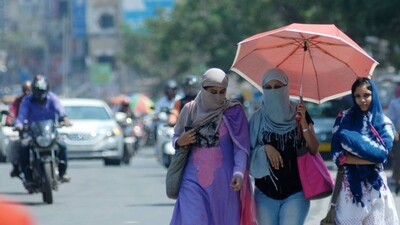Recommended Stories
In his address to a gathering of eminent academicians, intellectuals and students at the Utkal University, President Mukherjee said, “The recent increase in cases of brutal assault on women and child rape has shaken the collective conscience of the nation. These unfortunate incidents underscore the urgency for our society to pause and introspect at the erosion of values and our repeated failure to ensure safety and security of our women and children. Such criminal depravity is a threat to the civilized functioning of society. We must identify its causes and find solutions to it. The society must ensure the dignity and respect for women”.
The President added saying, “I call upon those who educate and nurture the minds of the youth, and who wield moral authority in the society to set this process in motion. Our universities and academic institutions must take a lead in imparting education which will help us meet the moral challenge of our times. It must help us build a modern democracy based on values of human dignity and equality”.
In his speech, President Mukherjee recalled the great contribution of Biju Patnaik whom he described as a “great son of India”. The President said, “In the Convocation Address in this very University on 2nd January, 1963, Dr. S. Radhakrishnan had said and I quote: ‘It is my hope that this seat of learning may produce men and women who will live, love, take risks, be prepared to suffer and create a civilized society’(unquote). This brings to my mind, the story of a young man who was fired by the idea of freedom struggle. For him, this struggle had no territorial limits. In the prime of his youth, he risked his life by flying an aircraft into the territory of an imperial power and rescued two great Indonesian freedom fighters and brought them back to safety in India. This young man could have lost his life, bringing an early end to the story of a political statesman of contemporary India. His name was Biju Patnaik. I pay my respectful homage to this great son of India”.
Speaking about economic growth, the President said, “Our Constitution has laid down that we have to build our society based on the freedom of human spirit, economic opportunities for all and social justice. We have to make economic growth work for the betterment of our people, especially those at the bottom of the socio-economic pyramid. Our strategy of inclusive economic growth has shown positive results. Our average annual economic growth during the last 10 years was 7.9 per cent though it has decelerated to 5.0 per cent in 2012-13. But I am confident that with the measures being taken, we would return to 7 to 8 per cent growth level in the next two to three years”.
Discussing about higher goals, the President said, “Distributive justice, as a higher goal of democratic polity, can be achieved only on the strength of a sound education system. The higher education system in India rests on the three pillars of quality, affordability and accessibility. At the end of the Eleventh Five Year Plan period, there were a total of 659 degree awarding institutions and over 33,000 colleges. The total enrolment of students in higher education, which was 2.6 crore at the end of the Eleventh Plan period, is envisaged to increase to 3.6 crore at the end of the Twelfth Plan period”.
Showing his deep concern about not keeping pace with world-class universities, the President said, “The drive to expand higher education in quantitative terms must be matched by adequate efforts at quality improvement. It is a matter of deep concern that no Indian university, according to an international survey of universities, is ranked within the top 200 universities in the world. The National Knowledge Commission had identified quality deterioration in higher education in its Report in 2006 as a ‘quiet crisis that runs deep’.”
The President urged to direct energies at developing Indian universities to meet global benchmarks. “There is a need to promote a culture of excellence in them. This calls for a dynamic higher education system with space for reforms”.
He urged universities to resort to innovative ways of teaching. Technology can be harnessed for collaborative information sharing. The infrastructure of the National Mission on Education through Information and Communication Technology should be put to greater use. Transmission of important lectures to students studying in institutions located away from cities and towns can become commonplace.
Speaking about private sector role in education, President Mukherjee said, “With several competing demands on public funding, the task of meeting the growing demands in the higher education sector will have to be in part shouldered by the private sector. Many private institutions have earned international reputation for quality and standards. We should encourage the participation of private sector without compromising on the social objectives and the quality benchmarks”.












